The crown completed its case at Dungannon Magistrates Court on Monday against Mr Alan McFarland, Ballagh Road, Clogher, who along with his son Robert, is charged with various offences relating to cattle identification, registration and movement.
Brought by DAERA, the charges mainly relate to the outcome of an unannounced cattle identification inspection (CII) by the Department’s welfare and enforcement branch on 15 October 2019.
In total, 14 cattle were seized off the farm due to identification issues, and destroyed.
The final witness to appear for the prosecution was a DAERA cross-compliance inspector who had been asked to accompany the enforcement team on 15 October.
He said his main focus was to check for any animal welfare issues, and he was concerned about the number of lame cattle on the farm.
The DAERA cross-compliance inspector asked to see medicine records for evidence of treatments used on these cattle
He sought a second opinion from a DAERA vet who also visited the farm, but on viewing the animals, the vet concluded there was “no major issues”, so long as the lame animals were being treated.
The DAERA cross-compliance inspector asked to see medicine records for evidence of treatments used on these cattle, but claimed he was told by Alan McFarland that the medicine book was with a form-filler and not available that day.
As a result, this was noted as a fail in the cross-compliance inspection. Everything else in the report, which runs to over 30 pages, was recorded as satisfactory.
The inspector told the court that he made clear to Mr McFarland the outcome of his inspection. He completed the first four pages of the report, with the rest to be filled in when he was next back in the office. He claimed that Alan McFarland had signed the report on that basis.
However, this was disputed by Alan McFarland when he took to the witness box.
He alleged that the form in front of the court was not the one he signed
He said the medicine book was available for inspection, and fully complete, but that the inspector wanted to take the book away, and “post it back to him”.
He claimed that the first four pages of the cross-compliance form he was asked to sign were blank, so he crossed out all boxes on these pages (to invalidate the form), signed it, and gave it back to the inspector. He alleged that the form in front of the court was not the one he signed.
Obstructed
Among the other charges against Alan McFarland was that he obstructed officials gaining entry to the farm on 15 October 2019.
After initially agreeing to delay the inspection for one week after Mr McFarland had explained that he was arranging flights to attend a family funeral in Britain, DAERA inspectors had returned an hour later, accompanied by the PSNI.
Mr McFarland told the court he had “taken a dislike to that” and had contacted his solicitor for advice, before agreeing not to obstruct the officials.
However, on driving up towards his home, officials found access to the yard blocked by a pickup.
Mr McFarland claimed that this was a private lane, just one car wide, with the pickup inadvertently left there by his father. He pointed out that there was a separate access to the farm off the main road via a lane “wider than the A4”.
“That is the context of this obstruction,” he said.
Identification
Aside from obstructing officials, most of the charges against Alan McFarland relate to cattle identification and movement, including a failure to notify DAERA of four cattle moving off the holding.
He explained that plastic tags are easily lost
In his evidence, Mr McFarland claimed that these four cattle were the same animals taken by DAERA because they did not have any tags.
He explained that plastic tags are easily lost, and in the case of a Charolais bullock due to go to ABP that week, it had one tag the evening before loading, with the plan to collect the second tag at Fane Valley on the way to the factory. However, the next morning the animal had lost the second tag, and had to remain on the farm as “you can’t order two replacement tags on the same day.”
Movements
He is also charged with failing to notify DAERA of the movement of a number of cattle on to his farm. Mr McFarland claimed that these cattle had been bought privately from a Fermanagh farmer on 10 October 2019.
However, unlike the McFarlands who use APHIS online to record all movements, the Fermanagh farmer was still using paper records.
I complied fully with the directive
The white MC2A, which must be received by DAERA within 7 calendar days, was handed in on 16 October 20219 (the day after the CII).
“Once DAERA enters the information, I hit the confirm button [on APHIS]. I complied fully with the directive,” said McFarland.
However, he confirmed that in the case of one animal, the seller had entered the animal’s herd number incorrectly, and that he had failed to initially notice the error, so a DAERA “fault report” had not been generated on the day of the CII.
Newborn
He is also charged with failing to tag a newborn calf, but pointed out that farmers have 21 days to tag a calf, and up to 28 days to register, and in this case, the calf was under three weeks old.
Legislation
Much of the third day of evidence in the case was spent disputing whether legislation quoted in the charges against Alan McFarland was actually relevant.
In a number of instances, the legislation cited has been repealed and replaced with new regulations.
In addition, Council regulation EC820/97 was wrongly quoted as EC820/973, while most of the charges refer to DARD, not DAERA. DARD has not existed since 2016.
Despite the defence arguing that these errors registered the charges defective, the deputy district judge in the case, Sean O’Hare allowed the charges to be amended, but said it “beggars belief” that the errors were not identified by the Public Prosecution Service.
The case is due to resume in May.
Read more
NI farmers in court over cattle ID queries
Farmer Writes: fed up replacing lost cattle tags
The crown completed its case at Dungannon Magistrates Court on Monday against Mr Alan McFarland, Ballagh Road, Clogher, who along with his son Robert, is charged with various offences relating to cattle identification, registration and movement.
Brought by DAERA, the charges mainly relate to the outcome of an unannounced cattle identification inspection (CII) by the Department’s welfare and enforcement branch on 15 October 2019.
In total, 14 cattle were seized off the farm due to identification issues, and destroyed.
The final witness to appear for the prosecution was a DAERA cross-compliance inspector who had been asked to accompany the enforcement team on 15 October.
He said his main focus was to check for any animal welfare issues, and he was concerned about the number of lame cattle on the farm.
The DAERA cross-compliance inspector asked to see medicine records for evidence of treatments used on these cattle
He sought a second opinion from a DAERA vet who also visited the farm, but on viewing the animals, the vet concluded there was “no major issues”, so long as the lame animals were being treated.
The DAERA cross-compliance inspector asked to see medicine records for evidence of treatments used on these cattle, but claimed he was told by Alan McFarland that the medicine book was with a form-filler and not available that day.
As a result, this was noted as a fail in the cross-compliance inspection. Everything else in the report, which runs to over 30 pages, was recorded as satisfactory.
The inspector told the court that he made clear to Mr McFarland the outcome of his inspection. He completed the first four pages of the report, with the rest to be filled in when he was next back in the office. He claimed that Alan McFarland had signed the report on that basis.
However, this was disputed by Alan McFarland when he took to the witness box.
He alleged that the form in front of the court was not the one he signed
He said the medicine book was available for inspection, and fully complete, but that the inspector wanted to take the book away, and “post it back to him”.
He claimed that the first four pages of the cross-compliance form he was asked to sign were blank, so he crossed out all boxes on these pages (to invalidate the form), signed it, and gave it back to the inspector. He alleged that the form in front of the court was not the one he signed.
Obstructed
Among the other charges against Alan McFarland was that he obstructed officials gaining entry to the farm on 15 October 2019.
After initially agreeing to delay the inspection for one week after Mr McFarland had explained that he was arranging flights to attend a family funeral in Britain, DAERA inspectors had returned an hour later, accompanied by the PSNI.
Mr McFarland told the court he had “taken a dislike to that” and had contacted his solicitor for advice, before agreeing not to obstruct the officials.
However, on driving up towards his home, officials found access to the yard blocked by a pickup.
Mr McFarland claimed that this was a private lane, just one car wide, with the pickup inadvertently left there by his father. He pointed out that there was a separate access to the farm off the main road via a lane “wider than the A4”.
“That is the context of this obstruction,” he said.
Identification
Aside from obstructing officials, most of the charges against Alan McFarland relate to cattle identification and movement, including a failure to notify DAERA of four cattle moving off the holding.
He explained that plastic tags are easily lost
In his evidence, Mr McFarland claimed that these four cattle were the same animals taken by DAERA because they did not have any tags.
He explained that plastic tags are easily lost, and in the case of a Charolais bullock due to go to ABP that week, it had one tag the evening before loading, with the plan to collect the second tag at Fane Valley on the way to the factory. However, the next morning the animal had lost the second tag, and had to remain on the farm as “you can’t order two replacement tags on the same day.”
Movements
He is also charged with failing to notify DAERA of the movement of a number of cattle on to his farm. Mr McFarland claimed that these cattle had been bought privately from a Fermanagh farmer on 10 October 2019.
However, unlike the McFarlands who use APHIS online to record all movements, the Fermanagh farmer was still using paper records.
I complied fully with the directive
The white MC2A, which must be received by DAERA within 7 calendar days, was handed in on 16 October 20219 (the day after the CII).
“Once DAERA enters the information, I hit the confirm button [on APHIS]. I complied fully with the directive,” said McFarland.
However, he confirmed that in the case of one animal, the seller had entered the animal’s herd number incorrectly, and that he had failed to initially notice the error, so a DAERA “fault report” had not been generated on the day of the CII.
Newborn
He is also charged with failing to tag a newborn calf, but pointed out that farmers have 21 days to tag a calf, and up to 28 days to register, and in this case, the calf was under three weeks old.
Legislation
Much of the third day of evidence in the case was spent disputing whether legislation quoted in the charges against Alan McFarland was actually relevant.
In a number of instances, the legislation cited has been repealed and replaced with new regulations.
In addition, Council regulation EC820/97 was wrongly quoted as EC820/973, while most of the charges refer to DARD, not DAERA. DARD has not existed since 2016.
Despite the defence arguing that these errors registered the charges defective, the deputy district judge in the case, Sean O’Hare allowed the charges to be amended, but said it “beggars belief” that the errors were not identified by the Public Prosecution Service.
The case is due to resume in May.
Read more
NI farmers in court over cattle ID queries
Farmer Writes: fed up replacing lost cattle tags



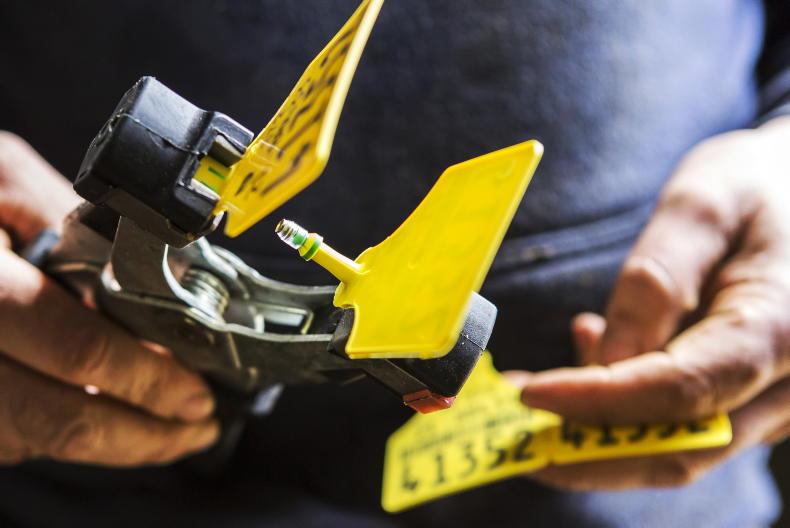

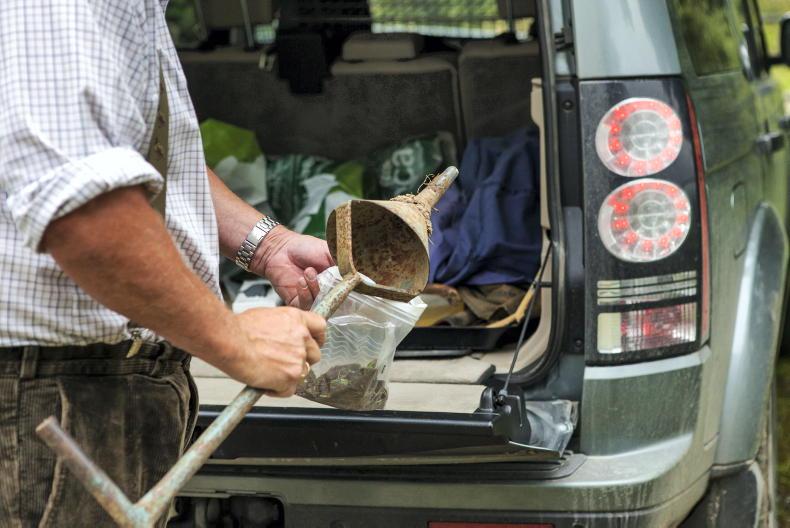
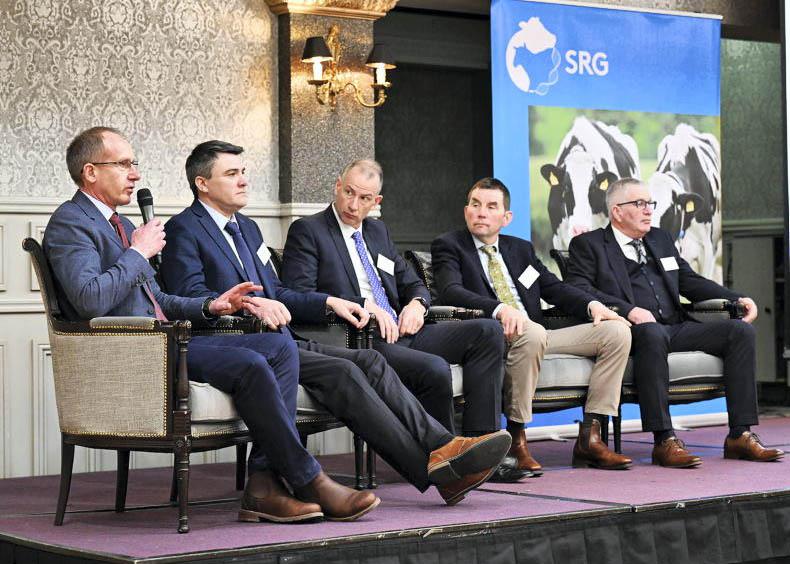
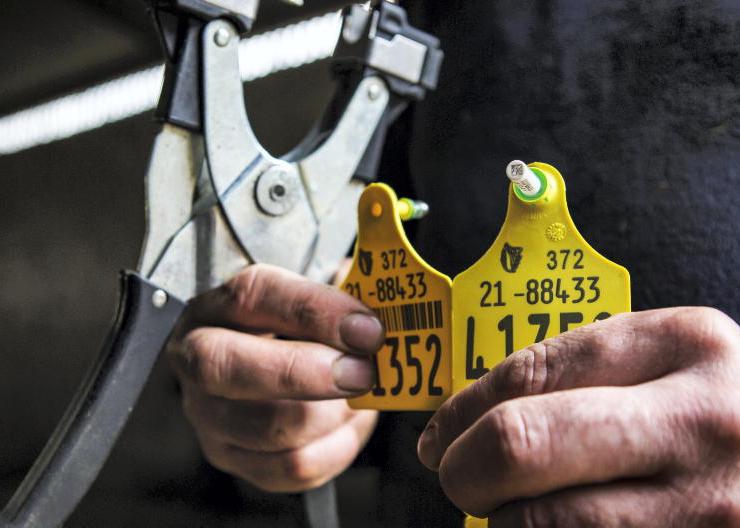
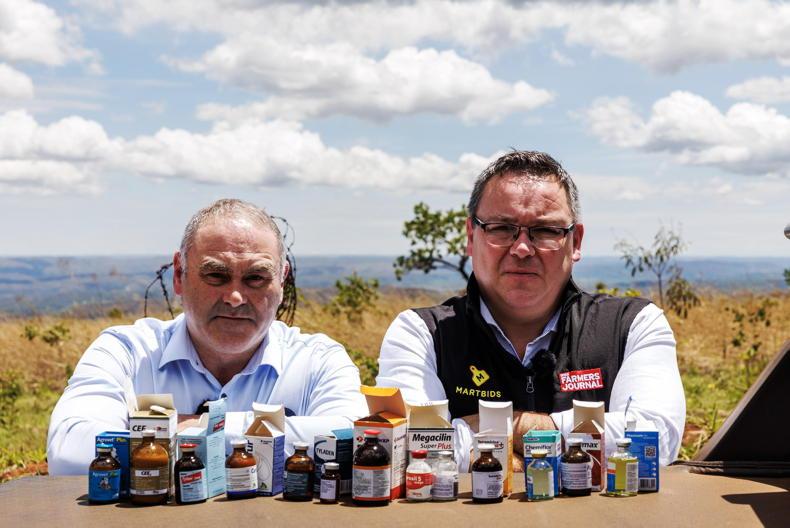
SHARING OPTIONS